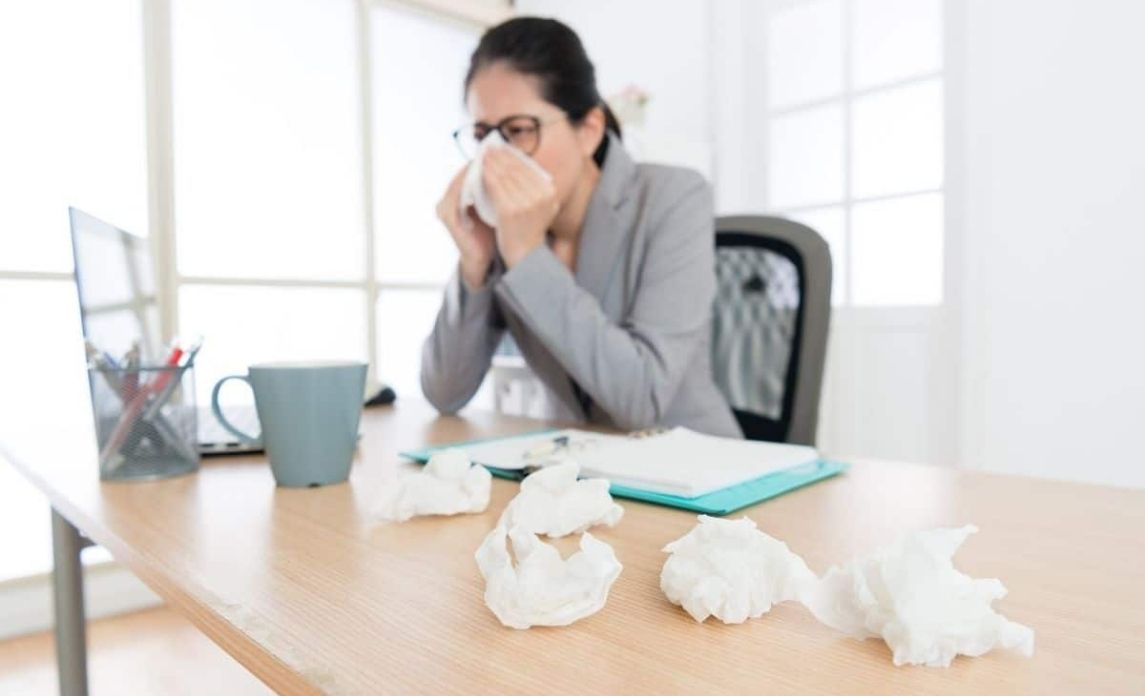Did you know that approximately 20% of New Zealanders suffer from allergic rhinitis? Some of your employees may be among this number, apart from those who have allergies to food and other substances. Therefore, as a business owner or manager, you should implement measures to help prevent office allergies.
Below are some easy-to-follow tips in managing allergies in the workplace.
Keep the Workplace Clean
There are a lot of people who miss work due to allergies, which are often triggered by poor air quality. Therefore, to reduce the incidence of allergies at work, you should work towards improving the cleanliness of indoor air. Below are some of the best things you can do:
- Cleaning. Regular cleaning is a must. Daily vacuuming and disinfecting are particularly important, especially for busy offices, as well as emptying the rubbish and recycling bins as soon as they are full. If necessary, hire a reliable cleaning company to do your office cleaning with extra care.
- HVAC maintenance. It’s also important to keep your HVAC systems in good shape. Have them inspected, serviced, and cleaned regularly to prevent any dust build-up in the vents. You should also make sure that the airflow isn’t obstructed, so that the clean air can circulate better around your office.
- Place some plants. indoor plants can also help in managing allergies in the workplace. Aside from absorbing carbon dioxide and producing oxygen, plants can also increase productivity, improve mood, and boost mental well-being. In short, indoor plants are great for overall health in the workplace.
Know Who Among Your Employees Have Allergies
The simple act of asking employees about allergies goes a long way towards preventing allergies in the workplace. Other employees can also be more conscious about their actions so as not to trigger their colleagues’ allergies even accidentally.
Being aware of your employees with allergies is also an important component in preventing employment discrimination. Allergies are easy enough to prevent. Once you’re aware of those who are sensitive to certain allergens, then you can make more proactive measures in creating an allergy-free workplace.
Reduce Allergens and and Protect Against Them
Some of the most common causes of allergies include the following:
- Dust and dust mites
- Pollen
- Mould
- Animal hair (dander)
- Latex
- Certain kinds of food
As much as possible, reduce and protect against these allergens to prevent allergies at work. Animal hair is easy enough to deal through pet-free regulations. You may also want to seat pet owners farther away from employees who have allergies.
For seasonal allergens such as pollen, good ventilation is key. As mentioned earlier, make sure to have your heating and air-conditioning systems maintained properly and regularly. Consider investing in air filtration devices as well.
Finally, it’s a good idea to invest in cleaning products that don’t contain VOCs or volatile organic compounds. These substances can irritate the lungs, trigger allergies, and even cause serious respiratory illness. If you’ve hired a cleaning company, check the kind of cleaning products they are using and ask them to choose those without any VOCs.
Install a HEPA Air Purifier
A HEPA air purifier is a valuable appliance to help prevent allergies at work. HEPA stands for high-efficiency particulate air. This air cleaner is made from thin glass fibres, capable of trapping common airborne allergens such as dust, dust mites and their eggs, pollen, and dander. HEPA air cleaners can also trap tobacco smoke.
What’s great about having a HEPA air cleaner in the office is that it benefits everyone. It can improve the air quality considerably, which can improve the health and well-being of everyone in your office. (Just make sure that you get the right size to enjoy the full benefits.)
Stock Allergy Medicines in the Office
Sometimes, accidents do happen no matter how hard you try to prevent it. In this case, it’s best to be prepared. Have a stock of medications ready to make accommodating allergies in the workplace easier.
Common over-the-counter allergy medications include cetirizine, desloratadine, levocetirizine, and loratadine. These are non-sedating, which makes them more ideal to address allergies at work.
Invest in Employee Training
Aside from letting your employees know who among them have allergies, it’s also a good idea to invest in proper health training. They should not only understand the signs and symptoms of an allergic reaction, but also know what to do should it trigger. This way, you have someone who is ready to respond in cases of life-threatening allergies.
Do note that it’s not absolutely necessary to train everyone. However, it’s best to have a handful of people who have the proper training so you’re not caught off-guard in case your point-person is unable to come to work. Create a first-aid team and assign a leader to make sure that everything is well-coordinated.
In Conclusion
Allergies are an unfortunate part of many New Zealanders’ lives. The good thing is that there are many things you can do as an employer or manager to prevent office allergies from happening.
Take note of this list to help you in managing allergies in the workplace. They’re simple and practical, which means you can easily implement them to turn your office into an allergy-free place.


